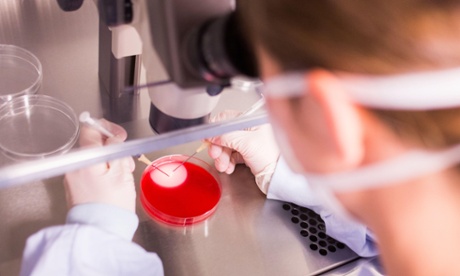
Would you want to know how many eggs you have got left? At birth, women have 1-2 million eggs, which sounds like more than enough, but the number declines through life. By a woman’s mid 30s, about 10% of eggs will have reduced fertility. Dr Amin Gorgy, a fertility expert, says that if you are a woman in your late 20s who is not ready to have a baby yet, you should have your eggs counted.
The solution
Of course, no one can really count your eggs – the only way to do that would be to remove your ovaries and stick them under a microscope, which is not going to help anyone’s fertility. But an ultrasound probe can see how many follicles there are in the ovaries, and a blood test can check the most pertinent hormone levels. Follicles are the tiny building blocks of the ovary within which eggs develop and grow each month. The counting is done in the first days of the cycle (the second to the fifth), when lots of follicles (called antral follicles) start growing, even though only one egg will be released eventually.
The test measures what is called “ovarian reserve”; if you have less than six follicles at this time, then your reserves are low – high is anything over 12. Professor Adam Balen, chair of the British Fertility Society and professor of reproductive medicine at Leeds Teaching Hospitals, says women in their 20s have counts of 15-30 follicles, whereas, in their late 30s, this can dip to between five and 10. The ultrasound scan is usually accompanied by a blood test for levels of anti-Müllerian hormone (AMH) which studies show is correlated to fertility, says Balen.
He suggests that some women might find the test reassuring, but that it can only give a snapshot – it can’t predict what will happen to fertility in the future. One of the biggest predictors of fertility can be your mother’s childbearing history – especially the age of her menopause: if this was early, then so could yours be. Smoking will also reduce fertility. If you are embarking on IVF, then tests of ovarian reserve are needed to see how much stimulation by hormones your ovaries will need to produce eggs.
The argument for ovarian reserve testing is around “informed choice” for women – but this reassurance can cost several hundred pounds. Being informed doesn’t address whether women delay having children because career paths are still not great at accommodating mothers. It’s not clear how beneficial it really is to have a snapshot of fertility. Time is never really on your side when it comes to having a baby, is it?

